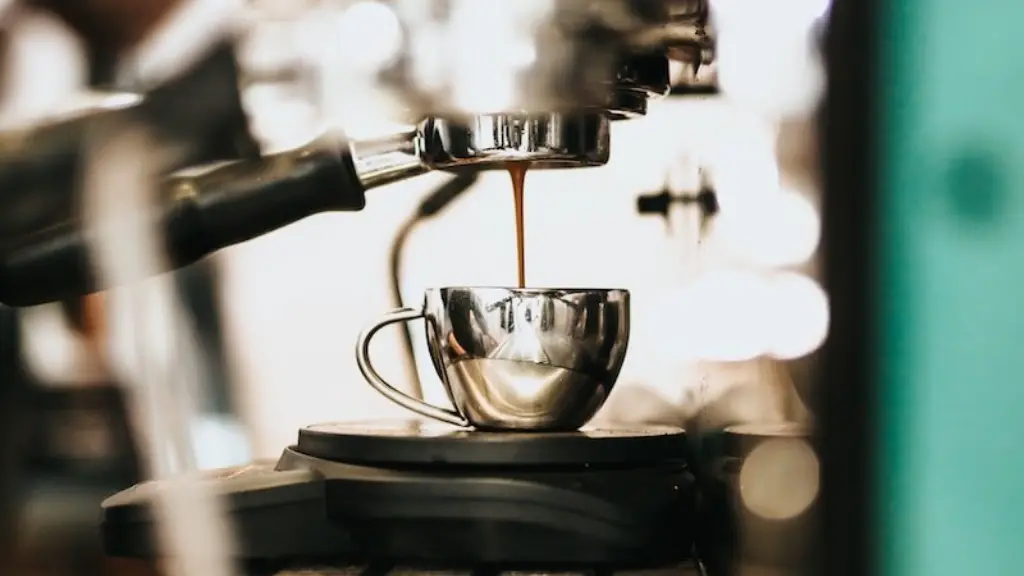Are bahais allowed to drink coffee? This is a question that has been a source of debate for years and is yet to come to a definitive answer. Coffee is a popular beverage around the world and has been so for centuries. It is thought that the earliest records of the consumption of coffee can be traced back to the 15th century in Ethiopia. Today, it is consumed by millions of people on a daily basis and has a major presence in cultures around the globe.
The Baháʼí Faith is a monotheistic religion founded in the 19th century by Bahá’u’lláh, which follows the teachings of previous prophets such as those found in the Bible, Torah, and Qur’an. Like many other religions, the Baháʼí Faith has specific rules and regulations, such as abstaining from the consumption of alcohol and following a moral code of conduct.
When it comes to the consumption of coffee, there is no particular law or explicit rule in the Baháʼí Faith which states whether or not bahais are allowed to drink it. Some bahais may abstain from drinking coffee out of personal preference, due to health concerns, or because of religious beliefs. Similarly, some bahais may choose to drink coffee in moderation as long as it does not have a negative impact on their health or spiritual life. Ultimately, the decision regarding whether or not to drink coffee is a personal matter and should be left up to each individual.
One of the main arguments against drinking coffee revolves around the idea of moderation. Baháʼí Teachings propose that all things should be done in moderation, and this includes caffeine. As with many forms of addiction, drinking too much coffee can cause an individual to become dependant on the caffeine and suffer withdrawal symptoms when they attempt to reduce their consumption. In addition to this, coffee can increase heart rate and cause anxiety, making it important to be mindful of how much is being consumed.
However, research has also found that the moderate consumption of coffee can actually bring a number of potential health benefits. For example, coffee has been linked to a reduced risk of type 2 diabetes and certain types of cancer, as well as being protective against dementia and Alzheimer’s disease. Furthermore, coffee is a natural source of antioxidants, which are important for reducing inflammation, fighting free radicals, and boosting the immune system. Of course, these potential benefits have to be balanced against the risks in order for bahais to make an informed decision about whether or not to drink coffee.
In conclusion, whether or not bahais are allowed to drink coffee is a matter of personal choice. The Baháʼí Faith does not explicitly prohibit the consumption of coffee, but it is important to be mindful of the potential risks and adverse effects of drinking too much. Ultimately, the decision to drink coffee should be based on an individual’s lifestyle, personal preferences, and values.
Is Caffeine Harmful?
Caffeine is the main active ingredient in coffee and is responsible for its stimulating effects. As with many other substances, the effects of caffeine can vary from one person to the next and depend upon the amount of caffeine consumed. Generally speaking, moderate amounts of caffeine can be beneficial for alertness and mental performance, while excessive amounts can cause jitteriness, anxiety and restlessness. Furthermore, overconsumption of caffeine can increase tolerance and lead to dependance and withdrawal symptoms, making it important to be aware of how much caffeine is being consumed.
It is also important to note that some people may be more sensitive to the effects of caffeine than others and may experience negative effects even after consuming moderate amounts. As with all forms of addiction, if coffee is causing adverse effects or disrupting daily life, it is important to seek advice from a medical professional.
In conclusion, caffeine can be beneficial in moderation but can cause adverse effects when consumed in excessive amounts. Bahais should be aware of their own sensitivity to caffeine, pay attention to any adverse effects and be mindful of how much caffeine is being consumed.
Are There Alternatives to Coffee?
For bahais who wish to avoid the effects of caffeine or abstain from drinking coffee for religious or health reasons, there are a number of alternative beverages available. Many of these alternatives are caffeine-free and can be just as enjoyable as coffee, if not more so.
Chicory coffee is one such alternative to traditional coffee and is growing increasingly popular due to its smooth, rich taste. This beverage is made from the root of the chicory plant and is common in Europe, where it has been consumed for centuries. It has a distinctive flavour and is naturally caffeine-free, making it a great alternative for bahais who wish to avoid caffeine.
In addition to this, there are a number of herbal teas which can provide a similar taste and experience to coffee. These teas are usually made from a blend of herbs, spices and fruits and are naturally caffeine-free. Many of these teas can also provide a number of health benefits, such as aiding digestion and boosting the immune system.
Finally, there is the option of decaffeinated coffee for those who wish to enjoy the taste and experience of drinking traditional coffee without the side-effects associated with caffeine. This beverage contains small amounts of caffeine which are stripped away during the decaffeination process, making it a great choice for bahais who still wish to enjoy a cup of coffee from time to time.
In conclusion, there are a number of alternatives to coffee which can be just as enjoyable, provide health benefits and are naturally caffeine-free. Bahais wishing to abstain from drinking coffee or looking for a healthier alternative should explore these options and find something that suits their needs.
What is Decaffeination?
Decaffeination is the process of removing the caffeine from coffee beans and other caffeinated beverages. Various methods of decaffeination have been developed over the years and the most commonly used today is the carbon dioxide process. This process involves using carbon dioxide to extract the caffeine molecules from the coffee beans at low temperatures and pressures.
The Swiss Water Process is another popular method of decaffeination which utilizes select green coffee extract to draw out the caffeine molecules from the coffee beans. This process does not use any chemical solvents or chemically-modified caffeine, making it an effective and safe method of decaffeination.
Other methods of decaffeination include the direct solvent method, the indirect solvent method, and the water-only process. While these methods can be effective, they generally use chemical solvents such as methylene chloride and ethyl acetate, which can leave a residue on the finished product. As such, these methods are usually reserved for decaffeinated beverages that will be further processed, such as instant coffee.
In conclusion, decaffeination is the process of removing the caffeine molecules from coffee beans and other caffeinated beverages. Modern decaffeination processes use carbon dioxide or select green coffee extract to achieve this in an effective and safe manner, while also preserving the taste and quality of the beverage.
How Does Coffee Affect the Environment?
The production, processing and consumption of coffee can have a serious impact on the environment. Common environmental issues associated with coffee production include deforestation, water consumption, the use of synthetic fertilizers, and the overuse of pesticides and herbicides. In addition to this, the transport of coffee from the producing countries to the rest of the world also has a significant environmental impact.
In order to reduce this impact, many coffee producers are striving to achieve sustainability. This involves using organic farming techniques and investing in renewable energy sources, such as solar panels. Furthermore, an increasing number of producers are now providing their workers with living wages and improved working conditions, resulting in improved economic and environmental outcomes.
Another way to reduce the environmental impact of coffee production is to switch to recyclable or biodegradable packaging. Many producers are now selling their products in reusable or compostable packaging, which significantly reduces the amount of single-use plastic used in the industry.
Finally, consumers can play a role in reducing the environmental impact of coffee production by supporting sustainable and responsible producers. Whenever possible, consumers should look for products with the Rainforest Alliance, UTZ, or Fairtrade marks, as these are certified for their commitment to sustainable practices.
In conclusion, coffee production has a significant impact on the environment, but producers and consumers can work together to reduce this impact. Sustainable farming practices and responsible purchasing decisions can help to reduce this impact and ensure that coffee production is more environmentally friendly.
What is Speciality Coffee?
Speciality coffee is a type of high quality, usually single-origin coffee beans which is produced and processed with exceptional care. Speciality coffee beans are usually sourced from areas with the best conditions for growing coffee, such as the slopes of a volcano or the high altitude areas of Ethiopia and Guatemala.
These coffee beans are then carefully processed and roasted in order to ensure that the maximum flavour, aroma and complexity can be extracted from them. As such, speciality coffee is often considered to be superior in quality to other types of coffee and has a unique taste and experience which is not found in regular coffee.
Speciality coffee is a growing trend in the coffee industry and many producers are now finding new ways to source, roast and brew the perfect cup of coffee. Consumers can purchase speciality coffee from a plethora of outlets, including speciality coffee shops, roasters and online retailers.
In conclusion, speciality coffee is a type of high quality, usually single-origin coffee which is processed and roasted with exceptional care. Bahais who wish to explore the world of speciality coffee should look for certified speciality coffee and trust their taste buds to find the perfect cup of coffee.





